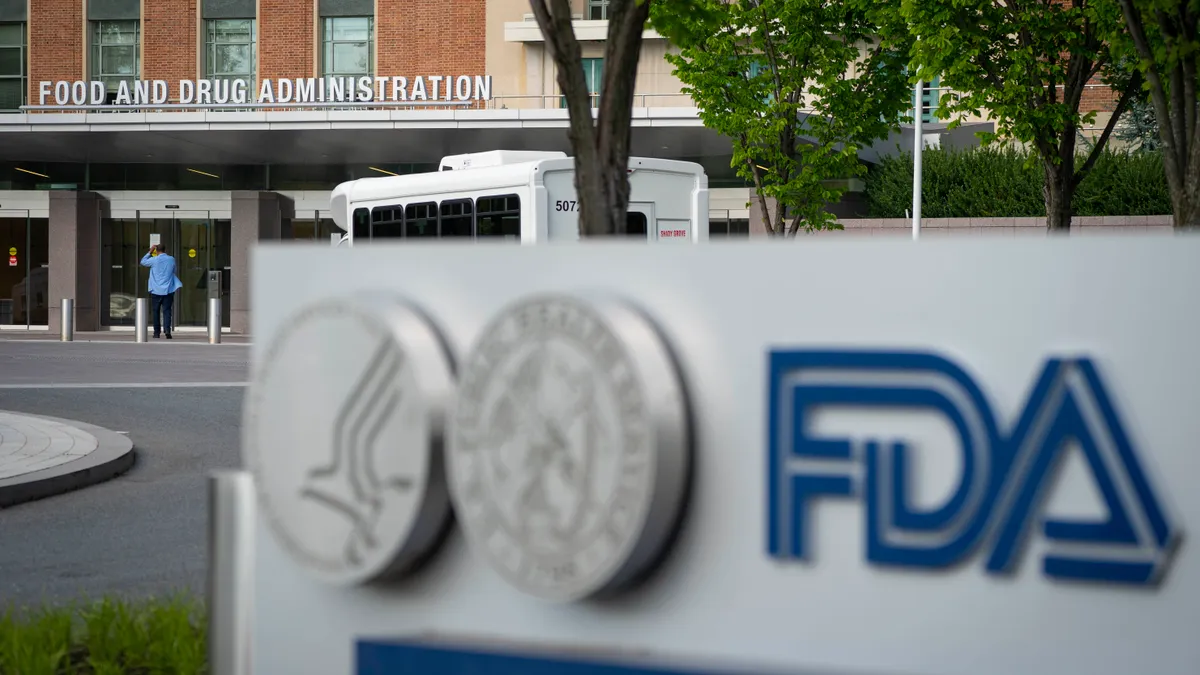Dive Brief:
- The U.S. Food and Drug Administration is evaluating concerns about the safety of unauthorized fixed palatal expanders that have been used to treat conditions including sleep apnea.
- Palatal expanders are used to widen the roof of the mouth to make room for crowded teeth in children and adolescents. However, when the devices are used in adults, whose upper jaw bones are fused, it can result in tooth loss, bone erosion, and other serious complications, the FDA said.
- The FDA investigation follows lawsuits, which CBS News and Kaiser Health News reported on earlier this month, that accused the manufacturer of the device and companies that promote it of providing devices that resulted in pain or complications.
Dive Insight:
The FDA investigation covers multiple classes of related devices, including anterior growth guidance appliances (AGGA). In a statement, the agency said it is “aware of these devices being used to treat conditions such as obstructive sleep apnea” and of “reports of serious complications with use of these devices.”
Dentists have used the devices to treat sleep apnea and temporomandibular joint disorder of the jaw despite their manufacturers lacking FDA clearance or approval in the indications. The FDA said “the safety and effectiveness of these devices intended for these uses have not been established.”
Earlier this month, CBS News and Kaiser Health News published a joint article about lawsuits involving AGGA devices made by Johns Dental Laboratories. One lawsuit claims “AGGA is not reasonably safe and is unreasonably dangerous, when used in adult patients in an attempt to make dimensional changes in the nasomaxillary complex.”
The American Academy of Dental Sleep Medicine commented on the article, claiming that “the inventor of the AGGA device promoted it as a cure for sleep apnea” and seeking to draw a distinction between AGGA and oral appliances for sleep-related breathing disorders.
Vivos Therapeutics won 510(k) clearance for another palatal expander in sleep apnea at the start of the year, having previously said dentists were “free to” use the device off-label and regularly prescribe the device to treat conditions closely associated with sleep apnea.
Some 30 million Americans may suffer from some form of sleep apnea, according to the American Medical Association.










